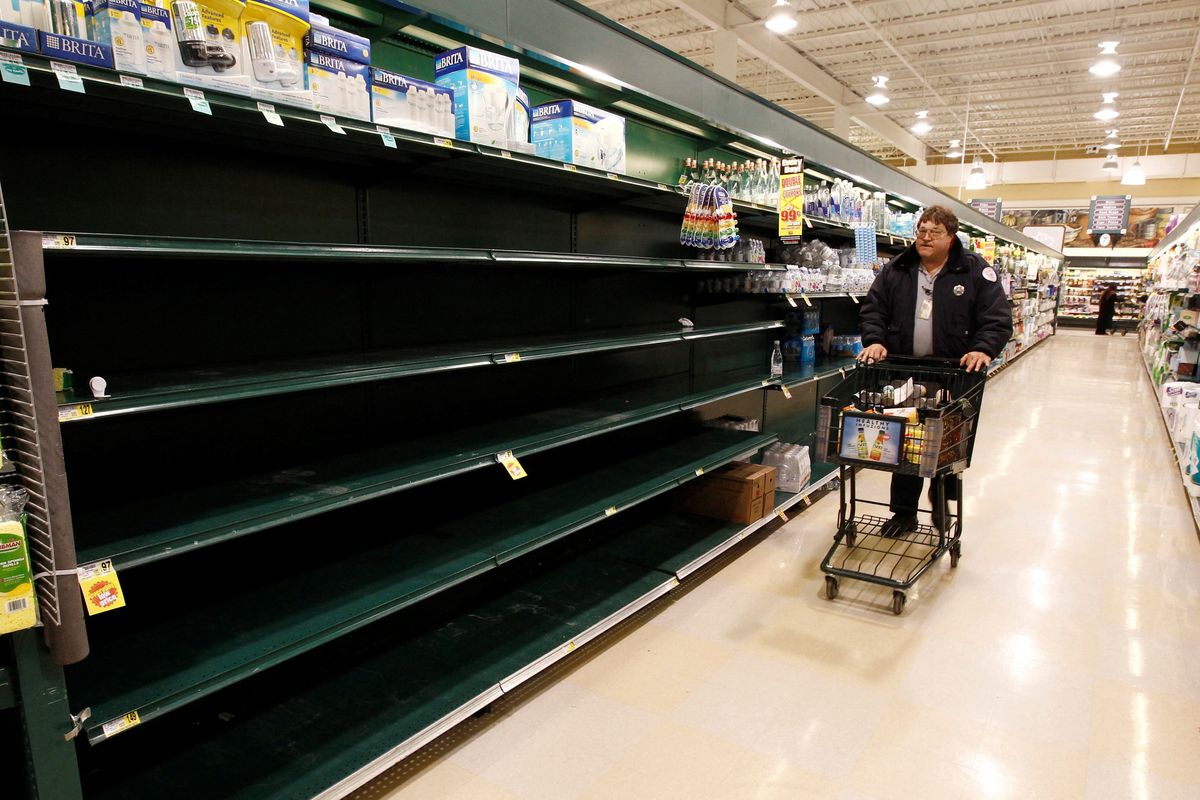Big-name retailers such as Walmart are increasingly using analytics to blunt the impact of one of the most unpredictable performance variables of shopping: weather.
Weather data, once used strictly for inventory planning, is now helping retailers localise advertising and decide when to discount seasonal items such as sweaters.
Walmart, whose inventory planning with artificial-intelligence software incorporates weather analysis, reduced sunscreen prices a couple weeks earlier than usual this year in parts of the US. Weather data forecasting a wetter-than-usual autumn in some US regions was a factor in its decision, whereas several years ago, it likely would not have been, said Kirby Doyle, a skin-care category replenishment adviser to the world's biggest retailer.
"In the beginning, (weather data) was just a forecast model for high-level planning," said Doyle, who works for Beiersdorf, which makes personal-care products. "Now we’re infusing it into pre-season planning and throughout the season to diagnose the impact of weather, and for things like scheduling promotions.”
A niche group of weather consultants — from Germany's Meteonomiqs to US firms Planalytics and Weather Trends International — is using breakthroughs such as cloud computing to process once-unimaginable amounts of data.
Demand for such data is growing amid heightened weather volatility due to climate change. The National Retail Federation in the US, which is chaired by a Walmart executive, issued a report with Planalytics in July, recommending retailers pay more attention to weather analysis.
New weather-data tools, centred on pricing, may soon be hitting the market. Planalytics and BearingPoint, a management consultancy, are partnering to build software retailers can integrate into their analytical models for setting prices.
“Weather is something you can’t control,” BearingPoint managing consultant Ryan Orabone said at an industry workshop last month to unveil the new initiative. “But you can control the analytics. And pricing, you absolutely control.”
It is natural for a warm October, like this year's in the US, to cause retailers to sweat ahead of the holidays. "It needs to get cold for our business to really perform well in Q4,” Tractor Supply CEO Hal Lawton said last month on a quarterly call.
The company, which uses weather analytics, sells cold-weather products like heating pellets and outerwear.
Weather analytics can help companies like Tractor Supply decide whether to discount winter items, said Planalytics CEO Fred Fox, whose clients include Dick's Sporting Goods and Ross Stores.
If November temperatures in the US drop below 2023 levels - which forecasts suggest is likely - a discount now could mean a missed opportunity later, Fox said.
As intuitive as that may seem to a retailer, they do not always get it right.
In August, Lowe's chief financial officer Brandon Sink cited cold, wet weather in May as the reason for weaker sales in the prior quarter.
But that description is inaccurate, said Bill Kirk, founder of Weather Trends, whose clients include Target, Gap, and Tractor Supply.
May was indeed wet, Kirk's data shows, but not cold. It was the hottest May in six years for the US, he said, and third-hottest in four decades. "Welcome to the world of retail excuses not based on facts," he said.
Rising temps, rising demand
About every three weeks in the US, a natural disaster causes $1 billion or more in damages, according to the US National Oceanic and Atmospheric Administration, up from once every three months in the 1980s.
Planalytics, which uses computer models to help retailers understand how weather affects sales, is on pace to provide clients with twice as many models in 2024 as it did last year, said Evan Gold, the company’s executive vice president of partnerships. Since 2019, that figure has shot up ninefold.
Retailers typically see weather's impact in foot traffic and sales, said Stefan Bornemann, head of Meteonomiqs, whose clients include retailers using the e-commerce platform Shopify. "The impact could get bigger, given more severe weather patterns,” he said.
Kirk has analysed how sales for a given product rise or fall with each degree of temperature change. Sales of horse blankets rise 7 per cent per degree colder and Starbucks coffee sales climb 2 per cent, he said.
Some clients use Kirk's data for so-called dynamic pricing, the practice of adjusting prices to demand. If a sales season looks particularly weak, clients may implement small markdowns early, rather than be forced to impose larger ones later to clear excess inventory, Kirk said.
The days of retailers using weather as an excuse for a poor earnings season should be over, he added.
“Wall Street hates that excuse,” Kirk said. “What you’re saying to your investors is, ’We can’t control our business.’”
(Reuters)


